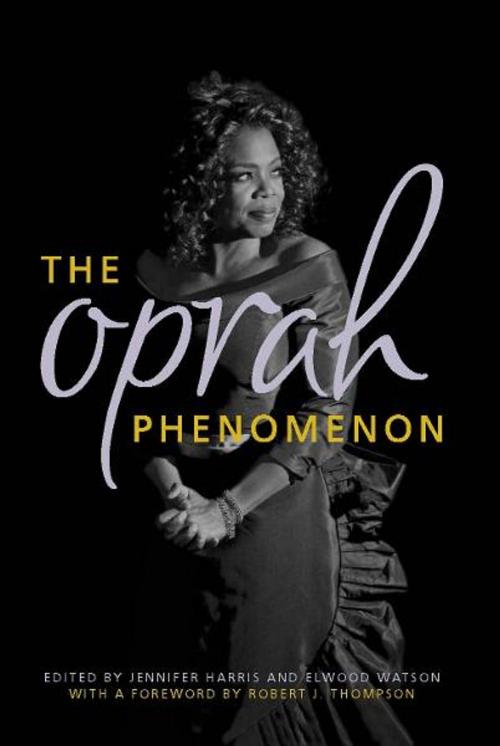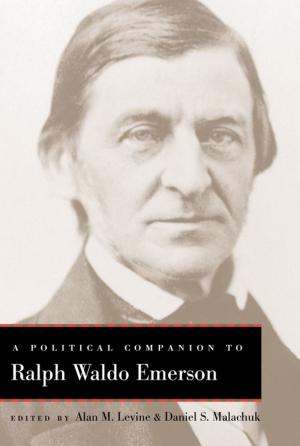The Oprah Phenomenon
Nonfiction, Social & Cultural Studies, Social Science, Cultural Studies, Popular Culture, Biography & Memoir, Entertainment & Performing Arts| Author: | ISBN: | 9780813137094 | |
| Publisher: | The University Press of Kentucky | Publication: | March 16, 2007 |
| Imprint: | The University Press of Kentucky | Language: | English |
| Author: | |
| ISBN: | 9780813137094 |
| Publisher: | The University Press of Kentucky |
| Publication: | March 16, 2007 |
| Imprint: | The University Press of Kentucky |
| Language: | English |
Her image is iconic: Oprah Winfrey has built an empire on her ability to connect with and inspire her audience. No longer just a name, "Oprah" has become a brand representing the talk show host's unique style of self-actualizing individualism. The cultural and economic power wielded by Winfrey merits critical evaluation. The contributors to The Oprah Phenomenon examine the origins of her public image and its substantial influence on politics, entertainment, and popular opinion. Contributors address praise from her many supporters and weigh criticisms from her detractors. Winfrey's ability to create a feeling of intimacy with her audience has long been cited as one of the foundations of her popularity. She has repeatedly made national headlines by engaging and informing her audience with respect to her personal relationships to race, gender, feminism, and New Age culture. The Oprah Phenomenon explores these relationships in detail. At the root of Winfrey's message to her vast audience is her assertion that anyone can be a success regardless of background or upbringing. The contributors scrutinize this message: What does this success entail? Is the motivation behind self-actualization, in fact, merely the hope of replicating Winfrey's purchasing power? Is it just a prescription to buy the products she recommends and heed the advice of people she admires, or is it a lifestyle change of meaningful spiritual benefit? The Oprah Phenomenon asks these and many other difficult questions to promote a greater understanding of Winfrey's influence on the American consciousness. Elwood Watson, associate professor of history at East Tennessee State University, is the editor of several books, including "There She Is, Miss America": The Politics of Sex, Beauty, and Race in America's Most Famous Pageant and Searching The Soul of Ally McBeal: Critical Essays.
Her image is iconic: Oprah Winfrey has built an empire on her ability to connect with and inspire her audience. No longer just a name, "Oprah" has become a brand representing the talk show host's unique style of self-actualizing individualism. The cultural and economic power wielded by Winfrey merits critical evaluation. The contributors to The Oprah Phenomenon examine the origins of her public image and its substantial influence on politics, entertainment, and popular opinion. Contributors address praise from her many supporters and weigh criticisms from her detractors. Winfrey's ability to create a feeling of intimacy with her audience has long been cited as one of the foundations of her popularity. She has repeatedly made national headlines by engaging and informing her audience with respect to her personal relationships to race, gender, feminism, and New Age culture. The Oprah Phenomenon explores these relationships in detail. At the root of Winfrey's message to her vast audience is her assertion that anyone can be a success regardless of background or upbringing. The contributors scrutinize this message: What does this success entail? Is the motivation behind self-actualization, in fact, merely the hope of replicating Winfrey's purchasing power? Is it just a prescription to buy the products she recommends and heed the advice of people she admires, or is it a lifestyle change of meaningful spiritual benefit? The Oprah Phenomenon asks these and many other difficult questions to promote a greater understanding of Winfrey's influence on the American consciousness. Elwood Watson, associate professor of history at East Tennessee State University, is the editor of several books, including "There She Is, Miss America": The Politics of Sex, Beauty, and Race in America's Most Famous Pageant and Searching The Soul of Ally McBeal: Critical Essays.















